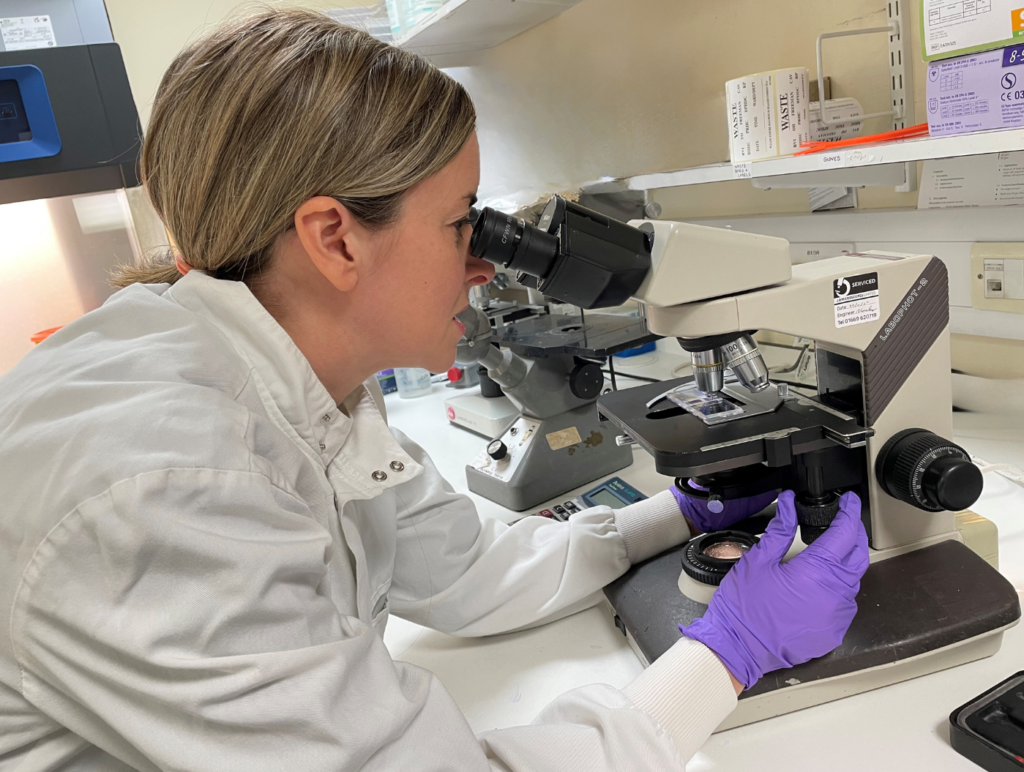A specialist service bringing together doctors and scientists to diagnose and shape life-saving treatment for patients with complex blood cancers has reached its ten-year milestone.
The Northern England Haemato-oncology Diagnostics Service (NEHODS) brings together highly skilled teams at both the Freeman Hospital and the Royal Victoria Infirmary (RVI) to provide expert analysis and diagnosis for people with suspected blood cancers from across the region.
The service diagnoses approximately 2,000 new people across the region each year using a detailed ‘jigsaw’ of different samples from a person’s bone marrow, blood and lymph nodes to inform the most effective treatment and prognosis.
However, the number of tests carried out each year is much higher at close to 15,000, including those newly diagnosed, as well as tests to monitor patients with chronic types of blood cancer and those who require additional investigations.
Dr Andrew McGregor, consultant haematologist for the service at Newcastle Hospitals, said thankfully some tests will show the patient doesn’t have cancer, but for those who do: “We need to get the diagnosis correct so that we can get the right treatment.
“For someone to go through intensive chemotherapy with modern novel therapies, plus a bone marrow transplant, it’s life-saving and it needs to be exactly right.”
He added: “Some people with an aggressive leukaemia will need treatment immediately so we make a diagnosis on the day.
“Other patients with types of blood cancer don’t need any treatment as often they can live with it like a long-term condition such as diabetes, but we can only give that information if we get the diagnosis right.”

According to Blood Cancer UK there are 43,000 diagnoses per year across the country, and the number of tests carried out by the service regionally has increased from 10,000 each year to the current figure
“The incidence is going up, but it’s always difficult to know whether it’s because you’re better at making the diagnosis or if it’s a true increase in incidence,” said Dr McGregor.
Newcastle Hospitals is a research-led trust and runs clinical trials for a range of novel treatments and therapies including blood cancers to bring the latest medicines to patients.
Gavin Cuthbert, consultant clinical scientist for the service at Newcastle Hospitals, said the development of personalised treatments which target the genetic make-up of the person’s acute leukaemia was a major advance for patients.
“In response we introduced new tests which quickly identify exactly which form of leukaemia and crucially the correct treatment.
“The clock is ticking on a genetic result, being able to instantly react when a child may have a type of leukaemia which requires urgent life-saving treatment is an example of how urgently things need to be done,” he said.
The service, which diagnoses leukaemia, lymphoma and myeloma, not only involves medical staff, but a whole plethora of scientists in different disciplines bringing all of the elements of the test together.
Angharad Goodman, lead genetic scientist for the service who played a central role in setting it up for patients, said: “We bring together expertise from scientists in a range of disciplines including genetics, cells and particles, tissue, blood and laboratory services.
“The level of collaboration and communication to provide a complex diagnosis quickly is unique.”
